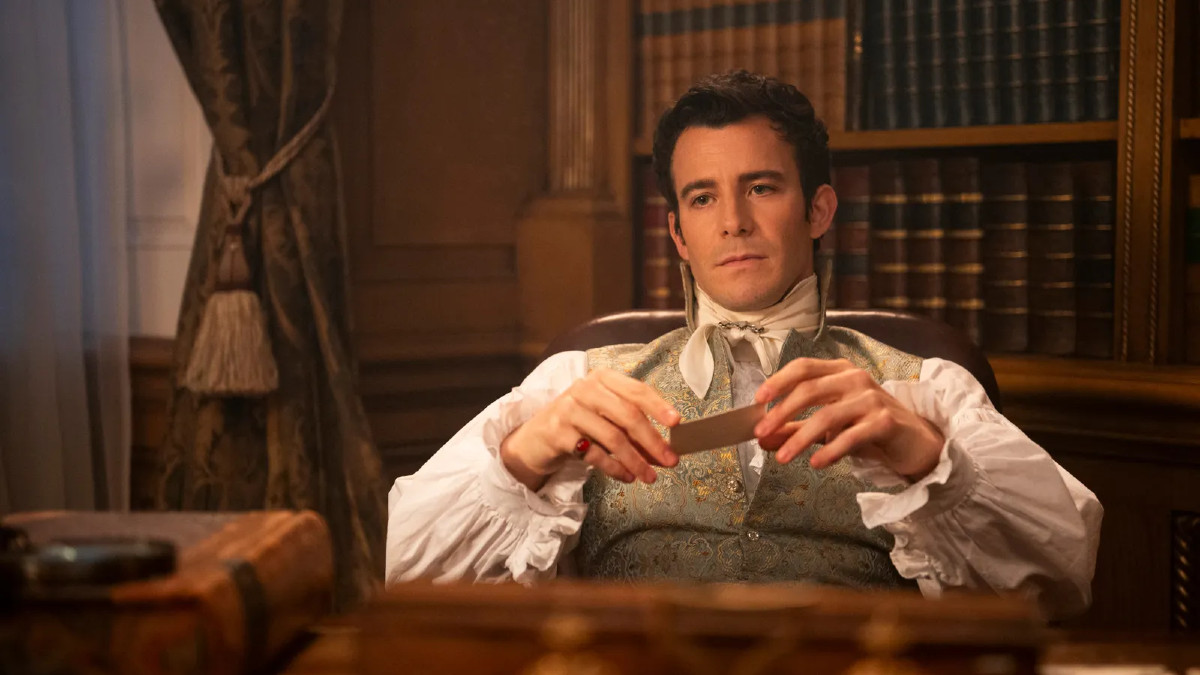
It’s happening. It’s really, finally happening. Netflix has confirmed that Benedict will be the leading man of Bridgerton season 4, and I will readily admit that my excitement just increased a thousandfold.
Benedict is one of those characters that, despite having been relegated to the sidelines for the past three seasons, I can’t help but love. He’s passionate, romantic at heart, charming, funny, kind, and forgiving, and I can’t wait for the show to highlight all those wonderful traits and more. I’ve previously written about how I believed they might make Benedict’s story work for season 4 timeline-wise, but now that this wonderful news has officially been confirmed, there’s plenty more to discuss about the upcoming season.
I would like to preface the rest of this article by saying that I am a staunch believer that show-Benedict is vastly superior to book-Benedict in almost every conceivable way. Yes, they both share a love of art (something I desperately hope Benedict regains in Bridgerton season 4) and become besotted with their future wife, Sophie Beckett, but there’s something darker about Benedict’s book counterpart. What will come into play for the first time in Bridgerton’s TV history is power dynamics. In this love story, Benedict has all the power, and not just because he’s a man in a patriarchal world.
Spoilers ahead for Benedict Bridgerton’s book, An Offer From a Gentleman.
Sophie deserves better!
Now, for those of you who may not be aware, Benedict’s romance with Sophie Beckett is essentially a Cinderella retelling. They meet at a masquerade ball—the inclusion of which has already been teased in the final minutes of Bridgerton season 3—they dance, they fall in love, and suddenly, without properly introducing themselves, Sophie is forced to flee the ball and return home. Though she does return to an influential family, she is not actually a member of that family; not in any way that matters to the Ton, at least. Sophie is the illegitimate child of the Earl of Penwood, forced to work as a servant for her late father’s wife until she is caught by the Lady of the house after the ball and thrown out onto the street.
Two years later, Sophie and Benedict run into each other at a party. Sophie is working, of course, and Benedict is a guest, but the story is truly set into motion when Benedict saves Sophie from being sexually assaulted. Though she’s fired from her job, Benedict offers her a place to stay with him, and they fall in love as he gets sick and she nurses him back to health. (It’s important to note that, throughout most of this, Benedict is unaware that Sophie is the woman he danced with at the ball). What’s perhaps most jarring about this whole tale is that initially, Benedict cannot conceive of her being anything other than a servant or his mistress. She loves him but is understandably wary of becoming pregnant if she has relations with him, and she can’t very well afford to be kicked out on the streets once again.
As such, as much as Sophie and Benedict’s story is an interpretation of Cinderella, it is also a story of societal power dynamics. So far, all of the Bridgerton pairings have been cultivated on relatively equal footing. Sure, the Duke in Bridgerton season 1 was of a higher rank than Daphne, but they were both respected in society. In season 2, Kate may not have been born directly into high society, but her stepmother was, and her entire family was sponsored by Lady Danbury. In Bridgerton season 3, Colin and Penelope enjoy the same social standing as well. Penelope’s family may have been ridiculed in the past, but if anything, Penelope was actually the one with more power, given her Lady Whistledown earnings.
Now, though, unless Sophie is recognized as the Earl’s legitimate daughter, her relationship with Benedict is entirely uneven. He has all the power, and throughout the book, he uses that power to his advantage (though perhaps not always consciously), forcing her to choose between options that are, in most cases, unfavorable to her. He wants to protect her, sure, but he goes about it in a very Regency-era way, and Sophie, as a result, has almost no agency in the story. Everything just sort of happens to her (she even briefly goes to jail!), and though it all works out in the end—this is still a romance, after all—she deserves to have a more active role in the show’s version of the story. A role that puts her on equal footing with Benedict, rather than having to do his bidding simply to protect her very way of life.
Maybe he doesn’t offer her a job with his mother, but she finds another one on her own. Maybe he tells her that he’s willing to run away to be with her rather than asking her to put herself in a precarious position by becoming his mistress. There are several changes the show can make to give Sophie more power in the narrative while preserving the essence of the novel’s romance. She can still stare at him while he goes skinnydipping! She can still encourage him to pursue his art and nurse him back to health! But she deserves to have a little less stress in her life while she does all those things.
Netflix’s version of Bridgerton is all about giving more agency to those historically left behind. If there is one character in the Bridgerton universe that would be willing to leave their privileged life behind for love, it’s Benedict. He’s compassionate and even has a secret of his own, one that would surely scandalize the Ton. Hopefully, with this version of Benedict, Sophie will be able to play a larger, more active role in getting her very own happily ever after.





